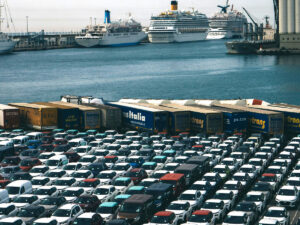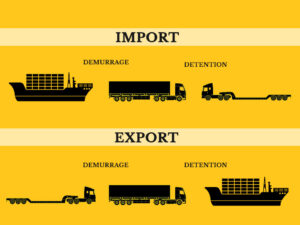Advancing Autonomous Shipping: Navigating Coastal Routes to Urban Logistics
The idea of crewless ships navigating coastlines, inland waterways, and even the open seas has moved beyond the realm of science fiction. During a recent CONNECTING PORTS talk show organized by HPC Hamburg Port Consulting (HPC), experts came together to explore the growing reality of autonomous shipping, emphasizing how this technology is steadily integrating into modern logistics.
Moderated by Christina Prieser, Associate Partner at HPC, the forum showcased perspectives from three prominent industry figures: Ornulf Jan Rodseth, General Manager of the Norwegian Forum for Autonomous Ships (NFAS); Marc Holstein, Head of the Remote Operation Center at SEAFAR in Antwerp; and Antoon van Collie, CEO of ZULU Associates.
Rodseth highlighted Norway’s groundbreaking advancements in semi-autonomous shipping, including the world’s first semi-autonomous container ship, which has been in operation since spring 2022. This vessel, managed with a minimal crew and remotely controlled, demonstrates the practical implementation of autonomous technology in coastal shipping services.
Holstein emphasized SEAFAR’s technology deployment on more than forty vessels, mainly in inland shipping. He noted the smooth integration of crew-reduced and remotely controlled ships into existing infrastructure, particularly in Belgium. Van Collie, on the other hand, discussed France’s advancements in permitting autonomous ships in its waters, with plans to operate unmanned vessels by next year.
The discussion also explored the potential of autonomous vessels in urban logistics. In cities like New York and Paris, small autonomous ships are already being used to transport goods, with some powered by hydrogen. Van Collie visualizes this model expanding to other cities, such as Berlin and Hamburg.
Looking to the future, Norway’s ASKO intends to replace road transport with two battery-powered, semi-autonomous ro-ro ships by 2026, aiming to reduce road traffic and lessen the strain on infrastructure. The experts concurred that remote control enhances operational safety, offering shorter and more manageable shifts for onshore captains compared to conventional seafaring roles.
As autonomous shipping continues to advance, it’s evident that this technology will revolutionize the global logistics and transportation industries by providing safer, more efficient, and eco-friendly solutions.



